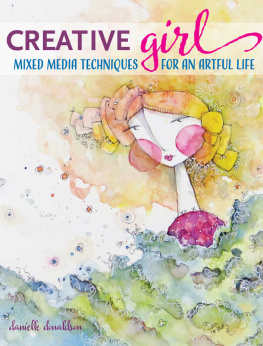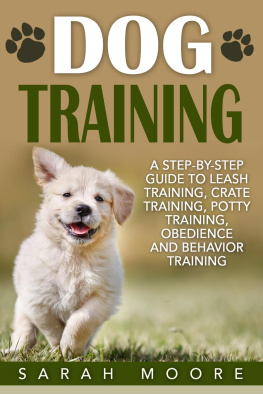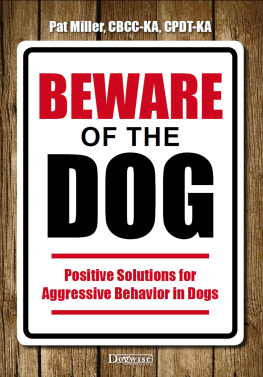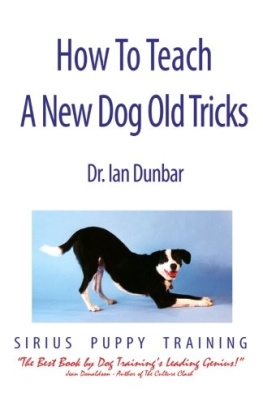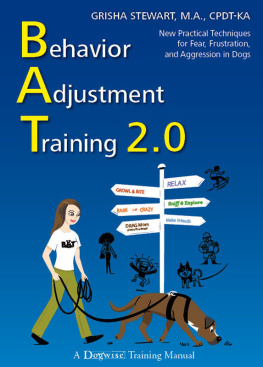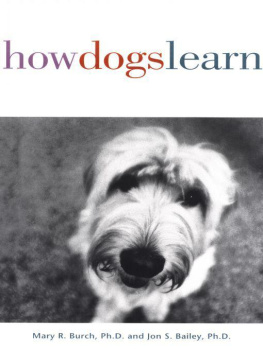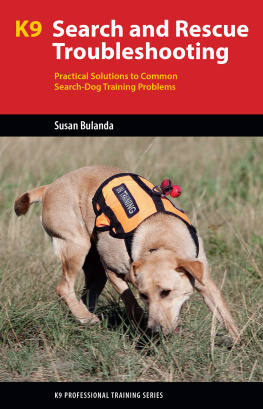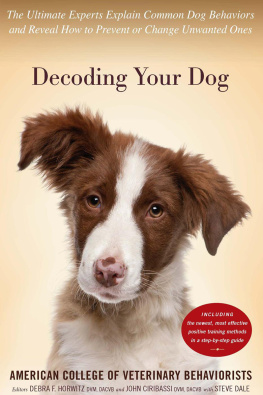
The Culture Clash
Jean Donaldson
Published by The Academy for Dog Trainers
www.academyfordogtrainers.com
Distributed by:
Dogwise Publishing
403 South Mission Street
Wenatchee, Washington 98801
509-663-9115, 1-800-776-2665
www.dogwisepublishing.com / info@dogwisepublishing.com
1996, 2005, 2013 Jean Donaldson
All rights reserved. No part of this book may be reproduced or transmitted in any form or by any means, electronic, digital or mechanical, including photocopying, recording or by any information storage or retrieval system without permission in writing from the publisher.
Limits of Liability and Disclaimer of Warranty:
The authors and publisher shall not be liable in the event of incidental or consequential damages in connection with, or arising out of, the furnishing, performance, or use of the instructions and suggestions contained in this book.
ISBN 978-1-61781-112-8
Printed in the U.S.A.
More titles by Jean Donaldson
Oh Behave! Dogs From Pavlov to Premack to Pinker. Dogwise Publishing, 2008
Train Your Dog Like a Pro (With DVD.) Howell Books, 2010
Dogs Are From Neptune, 2nd Edition. Dogwise Publishing, 2009
Canine Fear, Aggression and Play DVD. Tawzer Dog, 2008
Perfect Paws in 5 Days. Featuring Jean Donaldsons Modern Dog Training Methods DVD. Perfect Paws Productions, 2007
Fighting Dominance in a Dog Whispering World DVD. dogTEC, 2007
Predation in Family Dogs. Predation, Predatory Drift and Preparedness Seminar DVD. Distrubuted by Dogwise Publishing, 2006
Fight! A Practical Guide to the Treatment of Dog-Dog Aggression. Distrubuted by Dogwise Publishing, 2004
Mine! A Practical Guide to Resource Guarding in Dogs. Distrubuted by Dogwise Publishing, 2002
Train at the Next Level DVD Set. Tawzer Dog, 2012
For Lassie

Walt Disney vs. B.F. Skinner
A book published in the early 1990s refers to the moral code of dogs. It became a bestseller. It seems that most people still buy into the Walt Disney dog: he is very intelligent, has morals, is capable of planning and executing revenge, solves complex problems, and understands the value of the artifacts in Walts home. Nobody wants B.F. Skinners dog: the input-output black box who is so obviously not the furry member of our family. Its been marketed all wrong, I think. Skinner was right but has gotten bad press. The truth must be presented in a way that people will start to buy into. They have to, because not getting it has led to the death of countless dogs. Here is an example to illustrate the difference.
A dog has been reprimanded every time he was caught chewing furniture. Now the dog refrains from chewing furniture when the owner is home but becomes destructive when left alone. When the owner comes home and discovers the damage, the dog slinks around, ears back and head down.
Walts view: The dog learns from the reprimand that chewing furniture is wrong, and that the owner hates it. The dog resents being left alone and, to get back at the owner, chews the furniture when the owner leaves. He deliberately, in other words, engages in an act he knows to be wrong. When the owner comes home the dog feels guilty about what he has done.
BFs view: The dog learns that chewing furniture is dangerous when the owner is present but safe when the owner is gone. The dog is slightly anxious when left alone and feels better when he chews. It also helps pass the time. Later, when the owner comes home, the dog behaves appeasingly in an attempt to avoid or turn off the harsh treatment he has learned often happens at this time. The owners arrival home and/or pre-punishment demeanor have become a predictor: the dog knows hes about to be punished. He doesnt know why.
There is no question whatsoever that the second view is the accurate one. The question is not which interpretation is the truth but rather why anyone still argues the point. The medical equivalent would be a significant percentage of the American public thinking disease was caused by imbalance in humors, rather than microorganisms.
The accurate information has been around for decades, yet most people who own dogs havent learned it yet. One reason for our astonishingly poor understanding of dogs is extremely slow trickle down from experts: those in applied behavior educating one owner or one class at a time rather than something on the scale of public service announcements or spots on Oprah. Not only is this missing, fantastically inaccurate information about dog behavior is actively disseminated on reality TV.
But I think theres a second reason for the slow acceptance of realistic interpretations of dog behavior: simple reluctance to let go of anthropomorphism. Behaviorism, made famous by Skinner, has suffered some serious backlash since its assault on the world of psychology in the mid-twentieth century, largely because it could be successfully argued that hardcore behaviorism comes up short for understanding humans in all their mega-brain complexity. When it comes to animal training and behavior modification, however, the fit is incredibly good. But so far no amount of evidence makes the behaviorist model palatable to the average dog owner. The implications of this are really important.
The impressive staying power of Walts warmhearted but distorted view of dogs is a perverse measure of how much we like them. We want them to be smart, morally good. Many cynics see dogs as superior to people in their loyalty and trustworthiness. By contrast, the behaviorist model hasnt caught on in the mainstream because it seems to reduce dogs to input-output machines. Our fear is that if we accept this viewpoint, we strip dogs of their status as honorary humans, with the logical extension of negative ramifications for their welfare.
In other words, humans are tribal. Our compassion and consideration for other beings is strongly aligned with our perception of how similar they are to us, and a strong measure of that similarity is intelligence. IQ is still an acceptable prejudice. Heated ethical discussions ensued when the question of language acquisition in great apes was raised. Without a possible capacity for language, it had somehow seemed more okay to accept a utilitarian attitude towards them. No one much questioned the premise of intelligence as criterion for being considered for compassionate treatment.
Our species has a long history of incredible violence and horror perpetrated, essentially, because the victims were too far outside our perceived tribe. Our current tribal boundaries have a lot to do with species, IQ and moral integrity. Our bond with dogs is obviously strong. But they are the wrong species. To explain the bond, we compensate by exaggerating how much they resemble us in the areas of intelligence and morality. This is a typical example of a bias or attitude coming first and then edifices of explanatory facts or fictions being built in support of it.
But things do change. I think were more ready than we ever have been to accept the real species. We are now living in a culture that is much more aware of the concepts of tolerance and validation. Dogs are not like us, not nearly as much as we thought, but thats okay. We can still bond with them, share our lives with them and use them as surrogate children without apology. We dont have to build myths surrounding their nature to legitimize how we feel about them. They are valuable and fascinating as they really are. They dont need to be promoted in intelligence or morality to merit fair treatment or places in our families. Empathy and compassion for beings that are clearly unlike ourselves is a phase of ethical progress.
Next page





